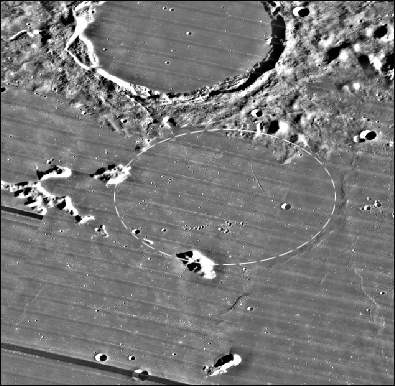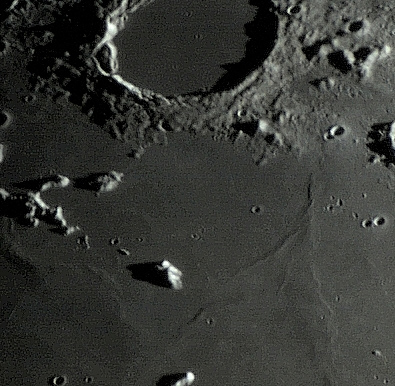Difference between revisions of "Ancient Newton"
| (One intermediate revision by the same user not shown) | |||
| Line 7: | Line 7: | ||
|- | |- | ||
| | | | ||
| − | [[Image: | + | [[Image:Ancientplato.jpg|ancientplato.jpg]]<br /> |
| | | | ||
| − | [http://www.lpod.org/coppermine/displayimage.php?pid=4633&fullsize=1 [[Image: | + | [http://www.lpod.org/coppermine/displayimage.php?pid=4633&fullsize=1 [[Image:Ancientplato-tolentino.jpg|ancientplato-tolentino.jpg]]]<br /> |
|} | |} | ||
'''Left:''' ''[http://the-moon.us/wiki/file/detail/ancientplato.jpg Annotated]'' [http://www.mapaplanet.org/explorer-bin/explorer.cgi?map=Moon&layers=moon_lo&west=471&south=361&east=816&north=76¢er=-8.16500000000001¢er_lat=0&defaultcenter=on&grid=none&stretch=auto&resamp_method=nearest_neighbor&projection=SIMP&r=1&g=1&b=1&advoption=NO&info=NO&resolution=28.581713462923&lines=397&samples=1309&scale=1.06093&imageTopX=-694382.2049498558&imageTopY=1673625.5589127541&box=yes&x=810&y=354 Lunar Orbiter] view from [http://www.mapaplanet.org Map-A-Planet]. '''Right:''' [http://www.lpod.org/coppermine/displayimage.php?pid=4633&fullsize=1 Ricardo Tolentino's] image from the [http://www.lpod.org/coppermine/ LPOD Photo Gallery].<br /> <div id="toc"> | '''Left:''' ''[http://the-moon.us/wiki/file/detail/ancientplato.jpg Annotated]'' [http://www.mapaplanet.org/explorer-bin/explorer.cgi?map=Moon&layers=moon_lo&west=471&south=361&east=816&north=76¢er=-8.16500000000001¢er_lat=0&defaultcenter=on&grid=none&stretch=auto&resamp_method=nearest_neighbor&projection=SIMP&r=1&g=1&b=1&advoption=NO&info=NO&resolution=28.581713462923&lines=397&samples=1309&scale=1.06093&imageTopX=-694382.2049498558&imageTopY=1673625.5589127541&box=yes&x=810&y=354 Lunar Orbiter] view from [http://www.mapaplanet.org Map-A-Planet]. '''Right:''' [http://www.lpod.org/coppermine/displayimage.php?pid=4633&fullsize=1 Ricardo Tolentino's] image from the [http://www.lpod.org/coppermine/ LPOD Photo Gallery].<br /> <div id="toc"> | ||
| Line 20: | Line 20: | ||
'''Ancient Newton''' is the informal name for the ghost ring illustrated above, extending from the south rim of [[Plato|Plato]], on the north, to [[Mons%20Pico|Mons Pico]], on the south.<br /> <br /> | '''Ancient Newton''' is the informal name for the ghost ring illustrated above, extending from the south rim of [[Plato|Plato]], on the north, to [[Mons%20Pico|Mons Pico]], on the south.<br /> <br /> | ||
==Description: Elger== | ==Description: Elger== | ||
| − | ''([[IAU% | + | ''([[IAU%20directions|IAU Directions]])''<br /> PLATO.-- ... On the [[Mare%20Imbrium|Mare Imbrium]] S. of [[Plato|Plato]] is a large area enclosed by low ridges, to which [[Johann%20Schr%C3%B6ter|Schroter]] gave the name "'''Newton'''." It suggests the idea that it represents the ruin of a once imposing enclosure, of which the conspicuous mountain [[Mons%20Pico|Pico]] formed a part.<br /> <br /> MOUNTAIN RINGS.--These objects, usually encircled by a low and broken border, seldom more than a few hundred feet in height, are closely allied to the walled-plains. ... The curious formation on the [[Mare%20Imbrium|Mare Imbrium]] immediately south of [[Plato|Plato]] (called "'''Newton'''" by [[Johann%20Schr%C3%B6ter|Schroter]]), may be placed in this category ... these features have the appearance of having once been formations of a much more prominent and important character, which have suffered destruction, more or less complete, through being partially overwhelmed by the material of the "seas."<br /> <br /> |
==Additional Information== | ==Additional Information== | ||
* The location of '''Ancient Newton''' is also depicted on SLC-charts [http://the-moon.us/wiki/SLC-D1 D1] and [http://the-moon.us/wiki/SLC-D2 D2]. | * The location of '''Ancient Newton''' is also depicted on SLC-charts [http://the-moon.us/wiki/SLC-D1 D1] and [http://the-moon.us/wiki/SLC-D2 D2]. | ||
Latest revision as of 20:39, 15 April 2018
Contents
Ancient Newton
(informal name)
|
Lat: 47.5° N, Long: 8.0°W, Diameter: 115 km, Depth: km, Rükl 11 | |
Images
LPOD Photo Gallery Lunar Orbiter Images
Maps
(LAC zone 25A2) LAC map Geologic map
Description
Ancient Newton is the informal name for the ghost ring illustrated above, extending from the south rim of Plato, on the north, to Mons Pico, on the south.
Description: Elger
(IAU Directions)
PLATO.-- ... On the Mare Imbrium S. of Plato is a large area enclosed by low ridges, to which Schroter gave the name "Newton." It suggests the idea that it represents the ruin of a once imposing enclosure, of which the conspicuous mountain Pico formed a part.
MOUNTAIN RINGS.--These objects, usually encircled by a low and broken border, seldom more than a few hundred feet in height, are closely allied to the walled-plains. ... The curious formation on the Mare Imbrium immediately south of Plato (called "Newton" by Schroter), may be placed in this category ... these features have the appearance of having once been formations of a much more prominent and important character, which have suffered destruction, more or less complete, through being partially overwhelmed by the material of the "seas."
Additional Information
Nomenclature
- The ghost crater immediately south of Plato was called Newton by Johann Schröter (see his illustration).
- That name was reassigned to a odd feature near the South Pole by Beer and Mädler, who referred to the present formation as Schröter's Newton. Schröter's ghost later became known as Ancient Newton (see, for example, Harold Hill, page 62). I don't know who first called it that. - tychocrater Jul 15, 2010
LPOD Articles
Classical Imbrium
Ancient Nothing?
A Classic View (Tom Bash)
A Classic View (Raffaele Barzacchi)
Everything is Here (telescopic High Resolution photograph of the Ancient Newton region, by Christian Viladrich)
Bibliography
- Longshaw, Nigel. 2002. The Lunar Crater Plato: A New Perspective. Current Notes (of the Manchester Astronomical Society)
- Longshaw, Nigel. 2002. More Musings on Plato. Current Notes (of the Manchester Astronomical Society)

